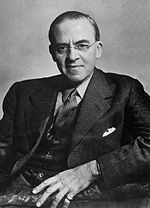How to Pronounce Stafford Cripps
#50
Most Popular
Boost
Apr 24, 1889 London Died on 21 Apr 1952 (aged 62)
British politician
TaurusStafford Cripps, Date of Birth, Place of Birth, Family, Facts, Age, Net Worth, Biography and More in FamedBorn.com

British politician
Taurus